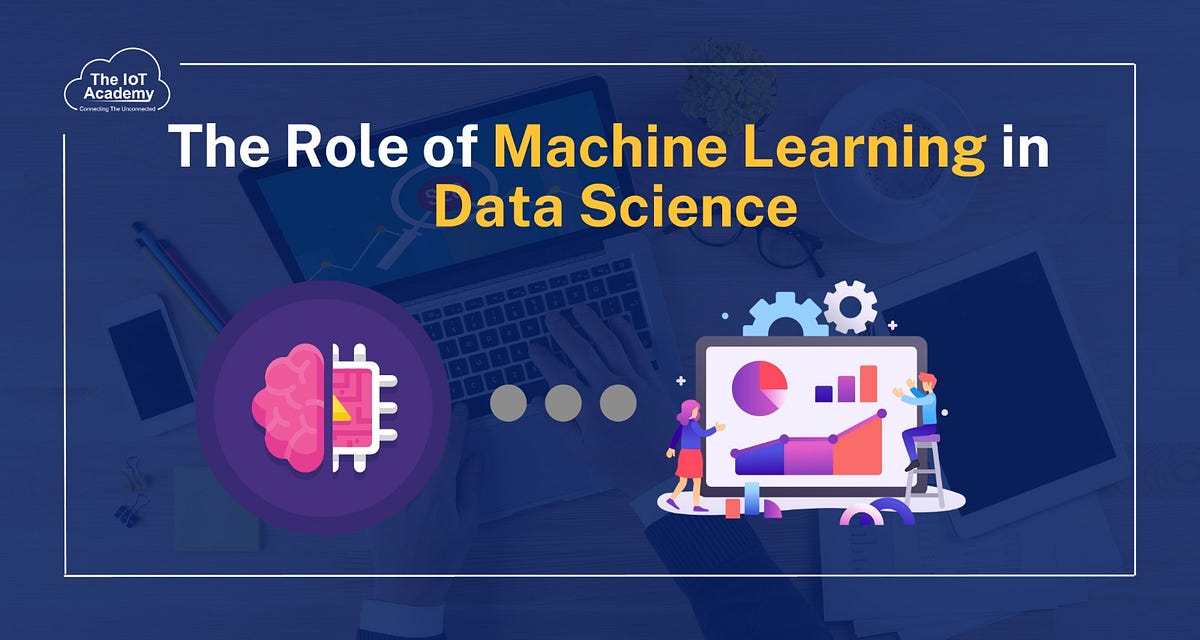As the world continues to generate massive amounts of data, deep learning has emerged as a revolutionary technology within data science. The impact of deep learning on various industries is undeniable, driving advancements in areas from healthcare to finance, retail to transportation. For anyone pursuing a career in data science, understanding the role and potential of deep learning is essential. This article explores the key concepts, applications, and benefits of deep learning, with insights on why it’s valuable to study a Data Science Course in Mumbai to harness this powerful technology.
What is Deep Learning?
Deep learning is a subset of machine learning that uses artificial neural networks to simulate how the human brain processes information. Unlike traditional machine learning algorithms, which often rely on human intervention for feature extraction, deep learning automatically identifies patterns from vast datasets. As a result, deep learning algorithms are better suited for complex data problems, making it a key focus in a data science course.
How Does Deep Learning Differ from Traditional Machine Learning?
Understanding the distinction between traditional machine learning and deep learning is vital for data scientists. Traditional machine learning algorithms depend on structured data, where domain experts define features for the model to learn from. On the other hand, deep learning uses multiple layers of neural networks to automatically extract features, making it highly effective in unstructured data analysis, such as image and language processing.
Enrolling in a data science course can offer practical experience in these methodologies, helping students select the appropriate model for different data types. Traditional machine learning remains valuable, but deep learning brings unprecedented capabilities for handling intricate datasets.
Key Applications of Deep Learning
- Image and Speech Recognition
Deep learning’s ability to process and analyse unstructured data has transformed fields like image and speech recognition. Convolutional Neural Networks (CNNs) are widely used for image processing, powering applications like facial recognition, medical imaging analysis, and autonomous vehicles. Speech recognition systems like Siri and Alexa rely on Recurrent Neural Networks (RNNs) for interpreting and processing spoken language.
As part of a data science course, students explore these neural network architectures, learning to build and train models for various use cases in computer vision and audio recognition.
- Natural Language Processing (NLP)
Natural Language Processing is a rapidly growing area of data science where deep learning has made significant breakthroughs. Through advanced models like Transformers and BERT, deep learning enables machines to understand, interpret, and generate human language, paving the way for applications in translation, sentiment analysis, and customer service chatbots.
Mastering NLP techniques is a key focus of a Data Science Course in Mumbai. The course equips students with the skills to work on NLP projects across diverse industries, from e-commerce to healthcare.
- Healthcare and Medical Diagnosis
The healthcare industry stands to benefit enormously from deep learning’s capabilities. Deep learning algorithms can process medical images to detect diseases early, offering highly accurate diagnostic support for conditions like cancer or retinal diseases. Models trained on vast medical image and patient record datasets can also help in drug discovery, personalised medicine, and genomics.
By enrolling in a Data Science Course in Mumbai, aspiring data scientists can gain exposure to real-world healthcare data and learn the skills necessary to apply deep learning in medical research and diagnostics.
- Financial Services
Deep learning is widely used in the financial sector for fraud detection, risk assessment, and algorithmic trading. By analysing historical transaction data, deep learning models can detect patterns indicative of fraudulent behavior, enhancing banking institutions’ security. Additionally, deep learning supports high-frequency trading by predicting market movements based on historical and real-time data.
Courses like a Data Science Course in Mumbai provide practical insights into how deep learning algorithms can be applied in finance, preparing students for roles in risk management and quantitative analysis.
Benefits of Deep Learning in Data Science
- Automated Feature Extraction
One of deep learning’s significant advantages is automated feature extraction, which reduces the dependency on domain expertise. This capability is especially valuable for complex datasets, such as images or text, where identifying features manually is challenging. Studying a Data Science Course in Mumbai will help students appreciate the efficiency gains deep learning offers through automation.
- High Scalability
Deep learning models are highly scalable, meaning they can process enormous amounts of data with better accuracy as more data becomes available. This scalability makes deep learning suitable for industries handling large datasets, such as social media, e-commerce, and healthcare.
Enrolling in a Data Science Course in Mumbai enables students to learn how to scale deep learning models, a critical skill for working with big data and making accurate predictions in a commercial environment.
- Improved Accuracy in Predictions
Deep learning algorithms consistently outperform traditional machine learning in accuracy, especially when dealing with complex patterns in large datasets. This capability makes deep learning models highly reliable for mission-critical applications, from autonomous driving to medical diagnostics. In a Data Science Course in Mumbai, students can work on projects that demonstrate the power of deep learning in improving prediction accuracy.
Challenges in Implementing Deep Learning
Despite its advantages, implementing deep learning is challenging. Deep learning models require substantial computational power, extensive data, and expertise in neural network architectures. Training deep learning models can be time-consuming, and fine-tuning requires careful adjustments.
Taking a Data Science Course in Mumbai provides the foundational knowledge to tackle these challenges, helping students gain hands-on experience with GPU-accelerated computing and hyperparameter tuning.
Why Pursue Deep Learning Skills in a Data Science Course in Mumbai?
One of India’s largest tech hubs, Mumbai, offers excellent opportunities for aspiring data scientists to explore advanced topics like deep learning. By enrolling in a Data Science Course in Mumbai, students can use a curriculum designed to cover the latest deep learning techniques, tools, and trends. Practical projects, case studies, and mentorship opportunities provide students with industry-relevant experience.
Conclusion: The Future of Deep Learning in Data Science
The future of deep learning in data science looks promising, with applications in nearly every industry. As organisations become more data-driven, the demand for skilled professionals proficient in deep learning will continue to grow. Mastering deep learning opens doors to high-impact tech, finance, healthcare, or retail roles.
Pursuing a data science course in Mumbai is a strategic move to stay competitive in this evolving landscape. With the right skills in deep learning, data scientists are well-positioned to lead innovative projects and make data-driven decisions that transform industries.
Business Name: ExcelR- Data Science, Data Analytics, Business Analyst Course Training Mumbai
Address: Unit no. 302, 03rd Floor, Ashok Premises, Old Nagardas Rd, Nicolas Wadi Rd, Mogra Village, Gundavali Gaothan, Andheri E, Mumbai, Maharashtra 400069, Phone: 09108238354, Email: enquiry@excelr.com.







